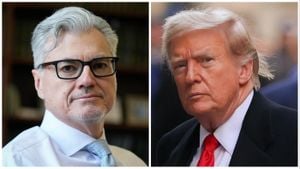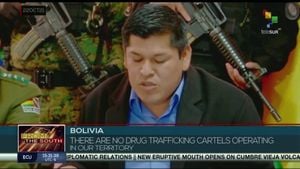The Israel-Hezbollah conflict has reignited, putting Lebanon at the forefront of regional tensions once more. The decades-long rivalry between Israel and Hezbollah, the Iran-backed militant group based in Lebanon, has been marked by escalations, sporadic violence, and political maneuvers. Recent events have underscored Lebanon's complex role as both a battleground and geopolitically significant player.
Background on the Conflict
The conflict dates back to the early 1980s, primarily rooted in territorial disputes and sectarian divides. Following Israel's invasion of Lebanon during the Lebanese Civil War, Hezbollah emerged to resist Israeli forces, gaining significant military and political strength over the years. The organization has since positioned itself as both protector of Lebanon’s sovereignty and as a proxy for Iranian influence in the region.
Despite numerous clashes and wars, such as the destructive 2006 Lebanon War, diplomacy has often faltered, leaving both sides perpetually on edge. Israel maintains its policy of targeting Hezbollah’s military capabilities, viewing the group as one of its primary threats. On the flip side, Hezbollah's leadership has consistently stated its readiness to retaliate against Israeli actions.
Current Tensions
Recent mobilizations by Israel around the Lebanese border have raised concerns about imminent confrontations. Reports indicate Israel's military is conducting extensive drills and reinforcing troops along the border. Analysts believe these actions reflect the increasing unpredictability of Hezbollah’s military activities, including its extensive weapons cache.
Concurrently, the economic and political malaise plaguing Lebanon complicates its position. The country has faced dire economic struggles, with many citizens enduring hardships from inflation and unemployment, which can amplify political instability. Hezbollah, with its strong presence, has often positioned itself as the provider of services to the needy, albeit amid growing frustrations from the population due to corruption and inept governance.
On multiple occasions, Hezbollah’s leaders have issued warnings against Israeli incursions, citing the need for defensive measures. "We will not remain silent and will defend our territory as it is our duty," said Hassan Nasrallah, Hezbollah's Secretary-General, emphasizing the commitment to respond to Israeli actions.
International Stakes
Lebanon’s role extends beyond its borders, involving key regional players like Iran and the United States. Iran continues to support Hezbollah, bolstering its military capabilities through funding and weapon supplies, stressing Tehran's interest to maintain its influence across the Levant. This dynamic often puts Lebanon squarely within the scope of U.S. strategic interests, as Washington seeks to counterbalance Iranian power.
The international community is closely monitoring the situation, as escalations could lead to broader regional conflicts. The U.S. government has issued travel warnings and is advising its citizens against engaging with Hezbollah, reflecting the perceived risks.
Hezbollah's Internal Challenges
While Hezbollah shows military might, it faces significant internal challenges. The economic collapse has weakened its support base, and public sentiment is increasingly skeptical toward the group’s ability to address Lebanon’s pressing issues. Some Lebanese citizens feel more aligned with the aspirations of other political factions, leading to protests aimed at both Hezbollah's influence and government corruption.
This internal dissent could impact Hezbollah’s future operations and strategic calculations as public opinion can shape the militant group's tactical choices. Nationals now expect results rather than rhetoric, demanding accountability and substantive changes, showcasing the ever-evolving political terrain within Lebanon.
The Human Cost of Conflict
With tensions flaring, humanitarian concerns are rising as civilians face the brunt of any reckoning between Israel and Hezbollah. The threats of renewed military action pose grave risks to the Lebanese populace already enduring hardship. Major infrastructure and public services remain fragile, battling the consequences of the previous wars and economic disarray.
US-based organizations stress the importance of safeguarding non-combatant rights and humanitarian access, even amid rising hostilities. Reports of military hardware accumulations by both sides raise alarms, as both Israel and Hezbollah prepare for potential confrontations.
The Path Forward
The path to conflict resolution remains precarious. Calls for diplomacy and dialogue resonate from various international quarters, stressing the need for a comprehensive approach to address both military capabilities and Lebanon’s socio-economic recovery. Experts argue for engaging regional actors, including Saudi Arabia and other Arab nations, to de-escalate tensions and seek long-term solutions to Lebanon's multifaceted crises.
Adding to the challenges, addressing Lebanon’s complex makeup—diverse religious and ethnic identities—requires multi-layered strategies founded on inclusivity and healing rather than division.
While Lebanon finds itself caught between internal crises and external pressures, the escalatory nature of the Israel-Hezbollah conflict continues to underline the vulnerabilities present. How Lebanon navigates this turbulent period will likely determine not only its immediate future but influence the larger dynamics of the region.



